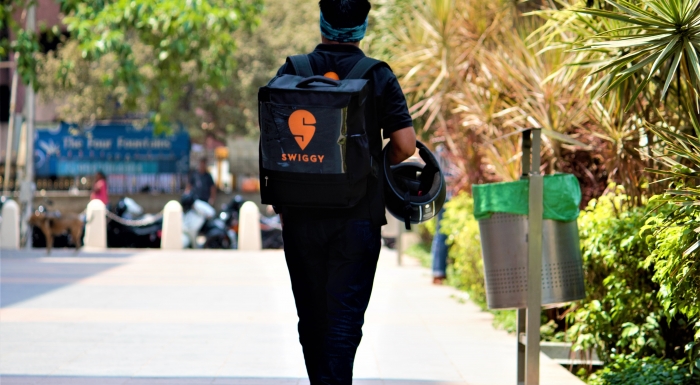

In the second year of research, The Fairwork India 2020 report evaluates the working conditions on eleven digital platforms in sectors such as domestic and personal care services, logistics, food delivery, and transportation.
The growth of the platform economy has undoubtedly offered employment opportunities in a country where there is growing concern that the number of workers seeking work has far exceeded the number of jobs available. However, our research shows that many platform workers lack labour and income security, and work-based identity, with little sense of a future in what they are doing.
This year, eleven platforms – including Ola, Bigbasket, Uber, Swiggy and Zomato – were scored, with nine being repeated from the first year. As of February 2020, an estimated three million workers were registered on the 11 platforms assessed. Platforms were scored against our five global principles of fair work through a combination of desk research, worker interviews conducted in Bangalore and evidence provided by some platforms.
The 2020 platform scores show the heterogeneity in working conditions amongst platforms, corresponding to the policies and management practices that platforms have in place. Urban Company, a home services platform, tops the list of platforms studied this year, followed by Flipkart, an e-commerce platform. Interviews with managers on both platforms revealed that the Fairwork process had provided them with new perspectives from the workers’ point of view – enabling them to reflect on their policies.
Fair pay: There was insufficient evidence that workers on seven of the eleven platforms earned the minimum wage rate after accounting for costs. Urban Company, Flipkart, Grofers, and Ola were the exceptions.
Fair conditions: Workers have little to no social security. While some platforms provide accident insurance, workers were unclear of the procedures to make claims.
Fair contracts: Except for Urban Company and Dunzo, there was insufficient evidence that clear and accessible terms and conditions were available to workers. Due to the growing reliance on subcontracting, workers were often unclear who was responsible for their conditions and pay.
Fair Management: A majority (8) of platforms provide a channel for workers to communicate and appeal disciplinary decisions including deactivations. However, only Flipkart and Urban Company have implemented measures to prevent discrimination and promote equity.
Fair representation: Platform companies also fared poorly when it came to acknowledging a collective voice for workers. Despite the recent protests and strikes by gig workers across India, we found no evidence of platforms agreeing to negotiate with worker associations and unions.
Fairwork scores provide an independent assessment of platforms. Our hope is that platforms, workers, regulators, and consumers, will all use the Fairwork framework and ratings to imagine, and realise, a fairer platform economy in India. The Fairwork India team is spearheaded by the Centre for IT and Public Policy (CITAPP) at the International Institute of Information Technology Bangalore (IIITB), along with partners at the University of Oxford and the University of Manchester.
A more accessible version is also available for users with screen-reader
We would love to hear your thoughts on the report, or on our broader work – if you’d like to get in touch, head over to our Contact page, or email us. Follow us on Facebook, Twitter or sign up to our newsletter to keep up to date with our work.
